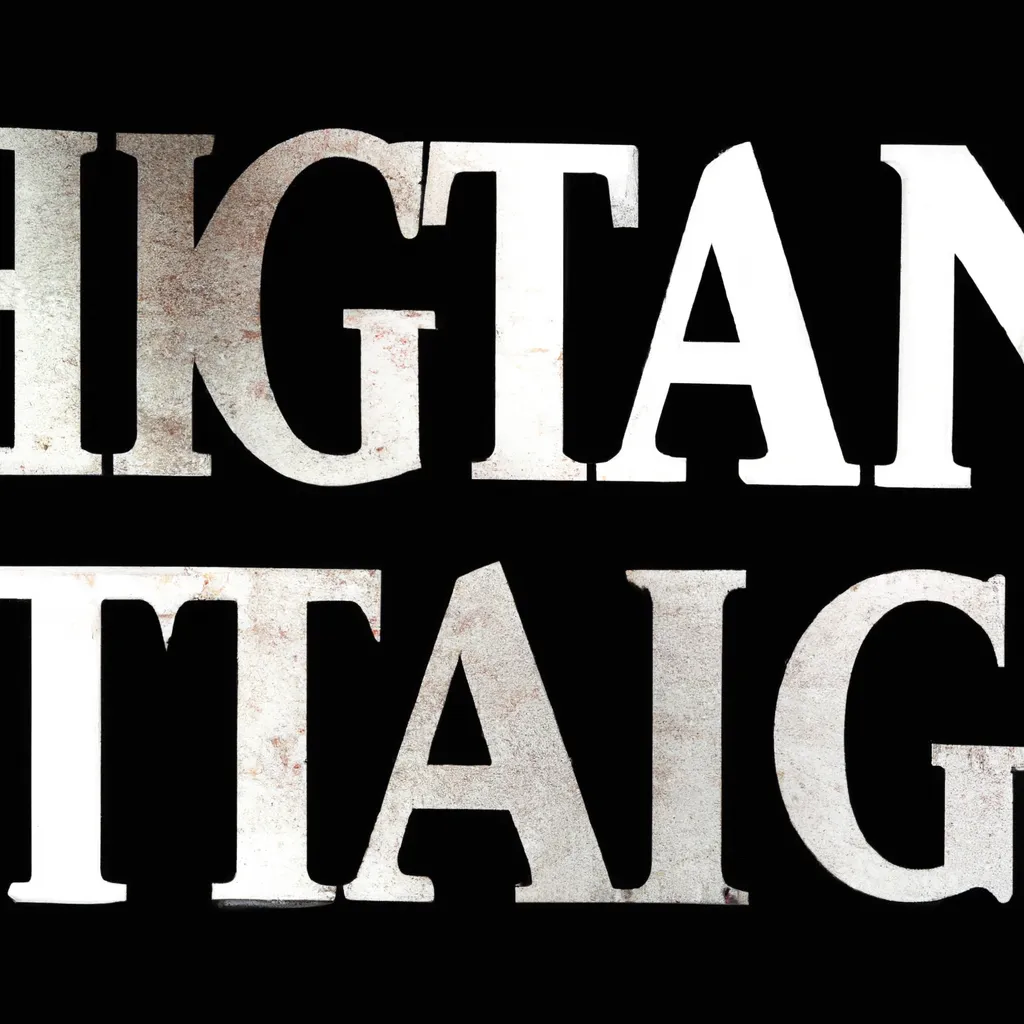Are you a resident of Glasgow contemplating your inheritance tax. Do you want to ensure that your estate is taken care of with proper tax planning solutions. Then you have come to the right place. In this article, we will provide you with all the necessary information you need to know about inheritance tax in Glasgow and how you can find the best tax solutions for your estate.
Inheritance tax in Glasgow is a tax imposed on the estate of a deceased person. It is calculated on the value of the estate at the time of the person's death and is paid by the beneficiaries of the estate. The current inheritance tax rate in Glasgow is 40% on estates over £325,000. However, there are various tax planning solutions available that can help reduce your inheritance tax bill and ensure your estate is protected.
But these are not the only things you need to know about inheritance tax in Glasgow. To gain a comprehensive understanding, it is essential to seek advice from experienced tax professionals. They can provide you with tailored solutions that suit your specific situation. So, don't wait any longer and reach out to a reputable tax expert today to secure your estate and minimize your inheritance tax.

Understanding inheritance tax: what it is and how it affects you
When it comes to managing your assets and planning for the future, understanding inheritance tax is crucial. Inheritance tax, also known as death duty, is a tax imposed on the estate of a deceased person. This means that upon their death, their property, money, and possessions may be subject to taxation by the government. In this guide, we will discuss what exactly inheritance tax is, how it works, and the potential effects it may have on your estate.
What is inheritance tax?
Inheritance tax is a form of taxation that is imposed on the estate of a deceased person. It is calculated based on the total value of the deceased's assets, including their property, money, investments, and possessions. Inheritance tax rates can vary depending on the value of the estate, but in the uk, the current threshold for inheritance tax is £325,000. This means that any estate valued above this threshold will be subject to a tax rate of 40% on the amount over £325,000.
It is important to note that inheritance tax only applies to the value of the estate that exceeds the threshold. For example, if an estate is valued at £400,000, only £75,000 (the amount over the threshold) will be subject to inheritance tax. Inheritance tax is a complex area of taxation, and seeking advice from a glasgow chartered accountant or tax advisor can help you understand the specifics of your situation and properly plan for the future.
How does inheritance tax work?
Upon the death of an individual, an executor is appointed to manage their estate. This executor is responsible for reporting the value of the estate to hm revenue and customs (hmrc) and paying any inheritance tax due. The executor must also distribute the remaining assets of the estate in accordance with the deceased's will or the rules of intestacy if they did not have a will.
Inheritance tax must be paid within six months of the individual's death. If it is not paid within this timeframe, interest will accrue, and penalties may be imposed. If the estate is not liquid enough to pay the inheritance tax, the executor may need to sell assets to cover the tax liability. However, there are certain reliefs and exemptions available that can help reduce the amount of inheritance tax due.
The effects of inheritance tax on your estate
The potential effects of inheritance tax on your estate may vary depending on the size and complexity of your assets. If your estate is valued above the inheritance tax threshold, it may be subject to a significant tax liability. This could potentially reduce the amount of inheritance that your beneficiaries receive.
However, there are various planning opportunities available to help minimize the impact of inheritance tax on your estate. These include lifetime giving, where you can gift assets to your beneficiaries before your death, and tax-efficient investment strategies that can help reduce the value of your estate. Seeking the advice of a glasgow chartered accountant or tax advisor can help you understand these options and make informed decisions to protect your estate and beneficiaries.
Inheritance tax is a complex area of taxation that requires careful planning to ensure your assets are protected for future generations. Understanding the basics of inheritance tax and seeking professional advice can help you effectively manage your estate and minimize the impact of taxation. 
Why you need chartered accountants for inheritance tax planning
Inheritance tax can often be a complex and confusing topic, causing many people to overlook its importance in financial planning. However, with proper planning and the help of experienced professionals, such as glasgow Based chartered accountants, you can significantly reduce your inheritance tax bill and secure your family's financial future. In this section, we will discuss the reasons why hiring chartered accountants for inheritance tax planning is crucial for you and your loved ones.
The importance of hiring chartered accountants for inheritance tax planning
Chartered accountants are highly qualified and experienced financial advisors who specialize in tax planning and consulting. They have a thorough understanding of tax laws and regulations, and they continuously stay updated on changes in legislation that may affect your inheritance tax bill. Seeking their professional guidance can save you and your family from significant tax liabilities in the long run.
Furthermore, chartered accountants have the necessary expertise to help you navigate through complex tax structures and find legal and effective ways to reduce your inheritance tax bill. They can assess your financial situation and provide personalized advice to minimize tax liabilities while ensuring that your assets are protected and preserved for your beneficiaries.
How chartered accountants can help reduce your inheritance tax bill
One of the main benefits of hiring chartered accountants for inheritance tax planning is their ability to identify and utilize various tax reliefs and allowances available to you. They can advise you on the most tax-efficient methods of passing down your wealth, such as creating a trust, gifting assets, or utilizing exemptions and reliefs provided by the government.
Another advantage of involving chartered accountants in your inheritance tax planning is their competence in handling complex tax rules, such as those related to business assets or overseas properties. They can help you structure your assets in a way that minimizes your tax liabilities while ensuring the smooth transfer of ownership to your beneficiaries.
Moreover, chartered accountants can provide invaluable support and guidance during the probate process, helping you navigate through any tax implications that may arise before and after the distribution of your assets. By hiring them, you can have peace of mind knowing that your loved ones will receive their rightful inheritance without any undue tax burden.
The benefits of having expert tax advisors on your side
In addition to their technical knowledge and expertise, chartered accountants can offer you objective and unbiased advice on inheritance tax planning. They can provide an external perspective and identify potential issues that you may have overlooked, ensuring that your tax planning strategy is comprehensive and effective.
Moreover, by having a team of expert tax advisors on your side, you have access to ongoing support and guidance for any future changes or developments that may impact your inheritance tax plan. This can be especially beneficial in times of financial uncertainty or when there are significant changes in your personal or business circumstances.
Inheritance tax planning is a critical aspect of financial management that should not be overlooked. With the help of chartered accountants, you can reduce your inheritance tax bill and secure your family's financial stability for generations to come. So, consult a tax advisor Today and start planning for your family's future.

The role of tax specialists in inheritance tax planning
Inheritance tax is a complex and often confusing area of taxation that affects many individuals and families. In the uk, inheritance tax is a tax on the estate of a deceased person, and it can be a significant financial burden for those left behind. However, with proper planning and the help of a tax specialist, inheritance tax can be managed and reduced. In this article, we will discuss the important role that tax specialists play in inheritance tax planning and the benefits of working with them.
What is a tax specialist and how can they help with inheritance tax?
A tax specialist, also known as a tax advisor, is a professional who specializes in tax law and regulations. They have in-depth knowledge and expertise in various areas of taxation, including inheritance tax. A tax specialist can assist individuals and families in creating effective tax strategies to reduce their tax liabilities and ensure that taxes are paid correctly and on time.
When it comes to inheritance tax, a tax specialist can provide valuable guidance and advice on how to minimize the tax burden on your estate. They can assist with tasks such as calculating the value of your estate, identifying any potential tax reliefs and exemptions, and determining the most tax-efficient way to pass on your assets to your loved ones.
Tax specialists can also help with other important aspects of inheritance tax planning, such as setting up trusts or making lifetime gifts to reduce the value of your estate. They can ensure that all steps are taken within the legal framework and in accordance with hm revenue and customs (hmrc) guidelines.
The benefits of working with a tax specialist for inheritance tax optimization
One of the main benefits of working with a tax specialist for inheritance tax planning is their expertise and experience. They have a deep understanding of tax laws and regulations and are up-to-date with any changes or updates. This means they can provide accurate and reliable advice tailored to your specific circumstances.
In addition, a tax specialist can save you time and stress by handling all the complex and time-consuming tasks involved in inheritance tax planning. They can also help you avoid any costly mistakes or penalties by ensuring that your taxes are filed accurately and on time.
Another advantage of working with a tax specialist for inheritance tax planning is their ability to provide objective and unbiased advice. In some cases, family members or loved ones may have differing opinions on how to manage the estate and minimize inheritance tax. A tax specialist can act as a neutral party and provide an objective assessment and recommendation.
How tax specialists can assist with complex inheritance tax situations
Inheritance tax planning can be particularly challenging and complex in certain situations, such as when there are overseas assets or when a person's estate is above the tax threshold. In these cases, working with a tax specialist can be especially beneficial. They have the knowledge and skills to navigate these complex scenarios and find the most tax-efficient solutions.
For example, if an individual has overseas assets, the tax specialist can advise on any tax implications and work with foreign tax professionals to ensure compliance. In cases where an individual's estate is above the tax threshold, a tax specialist can recommend strategies such as gifting, setting up trusts, or taking advantage of certain tax reliefs to minimize the tax burden on the estate.
Inheritance tax planning requires careful consideration and expert guidance to ensure that your loved ones are not burdened with unnecessary taxes. By working with a tax specialist, you can take advantage of their knowledge, experience, and objective advice to optimize your inheritance tax planning and provide peace of mind for yourself and your loved ones.
Inheritance tax: understanding the basics and finding the right cpa in glasgow
Inheritance tax is a tax levied on the estate of a deceased person before it is distributed to their heirs. This tax can be a significant burden for beneficiaries and can greatly reduce the value of an inheritance. In order to navigate this complex system and minimize the tax burden, it is essential to have a knowledgeable and experienced cpa on your inheritance tax planning team. In this section, we will explore the role of a cpa in inheritance tax planning and how they can make a difference in your specific situation.
What is a cpa and how do they help with inheritance tax?
A certified public accountant (cpa) is a qualified professional who is trained in all aspects of accounting and financial management. They are certified by passing a rigorous exam and meeting the educational and experience requirements set by their state. Inheritance tax falls under the realm of taxation, making a cpa well-equipped to handle this particular aspect of your finances.
When it comes to inheritance tax, a cpa can assist you in determining the best course of action to minimize the tax burden on your beneficiaries. They can offer valuable advice on estate planning and help you navigate the various tax implications of different strategies.
Cpas can also assist with the preparation and filing of inheritance tax returns, ensuring that all necessary steps are taken to reduce the estate's tax liability. They can also provide guidance on the various exemptions and reliefs available for inheritance taxes, such as the residence nil-rate band and spousal transfers.
In addition, a cpa can handle any potential audits or disputes with tax authorities on your behalf, giving you peace of mind and saving you time and stress.
The advantages of having a cpa on your inheritance tax planning team
Having a cpa on your side during the inheritance tax planning process can provide numerous advantages. One of the most significant advantages is their in-depth knowledge and understanding of the tax system. This expertise allows them to identify opportunities and strategies for minimizing your tax liability.
Cpas can also provide valuable insights and advice on your overall financial situation, making sure that your inheritance tax planning aligns with your overall goals and objectives. They can collaborate with your legal advisors to ensure that your estate planning and inheritance tax strategies work cohesively.
Furthermore, a cpa can offer a fresh and objective perspective on your financial situation, which can help you make informed decisions and avoid potential pitfalls. They can also provide regular reviews of your inheritance tax plan and adjust it as needed to keep up with any changes in tax laws or your personal circumstances.
How a cpa can ensure your inheritance tax procedures are legally sound
Another critical role of a cpa in inheritance tax planning is ensuring that all procedures and documentation comply with legal requirements. This can help avoid any potential issues or disputes with tax authorities, which could result in costly fines or penalties.
A cpa can also advise on the most tax-efficient ways to transfer your assets and wealth to your beneficiaries, ensuring maximum benefit for them and minimizing taxable amounts. They can also help you identify areas where taxes can be reduced or eliminated through charitable giving or other tax-saving strategies.
Additionally, a cpa can provide advice on creating trusts, which can be an effective way to minimize inheritance taxes and protect your assets for future generations. They can also assist with the administration of trusts, ensuring that they are compliant with tax laws and regulations.
Inheritance tax can be a significant burden on your beneficiaries, and proper planning is essential to minimize this tax liability. By having a trained and experienced cpa on your inheritance tax planning team, you can ensure that your assets are protected and your wishes are carried out in a tax-efficient manner. Contact a trusted glasgow cpa today to get started on creating a solid inheritance tax plan for your estate.
No tags for this post.
